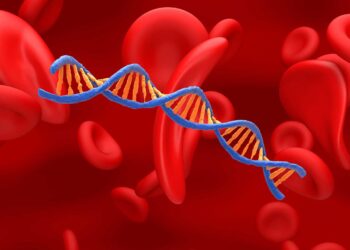CHICAGO — The investigational once-weekly basal insulin analog efsitora alfa lowered A1c as effectively as daily basal insulins in people with type 2 diabetes (T2D) who require insulin, showed three trials from the QWINT global phase 3 clinical trial program.
However, two of the trials showed increased mild hypoglycemia in patients treated with efsitora, which some experts say is a concern.
The QWINT-1 trial compared the efficacy and safety of a fixed-dose regimen of efsitora with once-daily glargine for 52 weeks in insulin-naive people with T2D; QWINT-3 compared efsitora with daily degludec for 78 weeks in adults already taking basal insulin; and QWINT-4 compared efsitora with daily glargine for 26 weeks in adults with T2D taking both basal and pre-meal bolus insulin.
Results from the three trials were presented on June 22 during a single symposium here at the American Diabetes Association (ADA) 85th Scientific Sessions, and were simultaneously published in the New England Journal of Medicine (QWINT-1) and The Lancet (QWINT-3 and QWINT-4).
QWINT-1: Fixed-Dose Efsitora
QWINT-1 was an open-label trial of 795 adults with T2D who had not previously taken insulin. Participants were randomized to weekly efsitora delivered by a single-use auto-injector or daily injected insulin glargine. Efsitora was titrated to four fixed doses at 4-week intervals, as needed for blood glucose control.
At week 52, efsitora had reduced A1c from 8.20% at baseline to 7.05% (–1.19 percentage points), compared with 8.28% to 7.08% with glargine (–1.16 percentage points), confirming noninferiority.
“The novel fixed-dose regimen used in QWINT-1 for once-weekly efsitora, with titration options of only four different doses, can facilitate and substantially simplify initiating and escalating insulin therapy, potentially changing the insulin management paradigm in type 2 diabetes,” lead investigator Julio Rosenstock, MD, senior scientific advisor for Velocity Clinical Research and clinical professor of medicine at the University of Texas Southwestern Medical Center, Dallas, said during a press briefing held at the meeting.
In addition, the rate of combined clinically significant hypoglycemia (< 54 mg/dL) or severe hypoglycemia (requiring assistance for treatment) was significantly lower with efsitora than glargine (0.50 vs 0.88 events per participant-year of exposure with glargine [estimated rate ratio, 0.57]).
In an editorial accompanying QWINT-1, NEJM Deputy Editor Julie R. Ingelfinger, MD, and Clifford J. Rosen, MD, director of clinical and translational research and a senior scientist at Maine Medical Center’s Research Institute, Scarborough, write: “The present trial of efsitora potentially offers a ready-made and possibly straightforward algorithm for dose escalation. If packaged at a widely affordable price, efsitora would most likely simplify glycemic control for many persons with type 2 diabetes.”
However, limitations of QWINT-1 include the open-label design and lack of use of continuous glucose monitoring (CGM), Ingelfinger and Rosen note.
QWINT-3 and QWINT-4
In both QWINT-3 and QWINT-4, efsitora was administered using traditional insulin dosing with adjustments based on each patient’s glucose level.
In QWINT-3, 986 adults with T2D who had already been treated with basal insulin and other noninsulin glucose-lowering medications, were randomized 2:1 to weekly efsitora or daily degludec. At week 26, A1c decreased by 0.81 percentage points with efsitora versus 0.72 with degludec, also meeting the noninferiority margin.
Combined level 2 and 3 hypoglycemia from baseline to week 78 was similar in the efsitora and degludec groups, at 0.84 versus 0.74 events per patient-year, respectively. However, level 1 (mild) hypoglycemia was significantly more common with efsitora (8.34 vs 6.05; P = .0005).
Nine deaths occurred during the trial but none were related to study treatment.
In QWINT-4, 730 participants with T2D who had been treated with both basal and prandial insulin and up to three noninsulin glucose-lowering agents were randomized to efsitora or glargine U100, both with premeal insulin lispro. Mean baseline A1c was 8.18%. At 26 weeks, mean A1c was 7.17% in the efsitora group and 7.18% in the glargine group, meeting noninferiority criteria.
As in QWINT-3, rates of moderate/severe hypoglycemia in QWINT-4 did not differ between the efsitora and glargine groups (6.6 vs 5.9 events per patient-year; P = .44), but mild hypoglycemia was more common with efsitora (25.3 vs 19.0; P < .0004). Other adverse event rates were similar.
Is Hypoglycemia a Problem With Weekly Insulin?
These three new studies round out the QWINT program, as results from QWINT-5, in type 1 diabetes (T1D), and from QWINT-2, in insulin-naive adults with T2D, were presented at the European Association for the Study of Diabetes (EASD) 2024 Annual Meeting.
Hypoglycemia emerged as a significant issue with efsitora compared with insulin degludec in adults with T1D in the QWINT-5 trial.
Another once-weekly insulin analog, Novo-Nordisk’s insulin Icodec, has been approved under the brand name Awiqli in the European Union, Canada, Australia, Japan, and Switzerland for T1D and T2D, and in China for T2D. However, the US Food and Drug Administration requested more data to address the concern about hypoglycemia in T1D.
“The risk of hypoglycemia remains a crucial factor when evaluating the safety of novel insulin preparations with a long half-life, such as efsitora, which has a half-life of 17 days,” wrote Edith WK Chow, MD, and Elaine Chow, MD, PhD, both of The Chinese University of Hong Kong, in an editorial accompanying QWINT-3 and QWINT-4.
“In both trials, the efsitora group had higher rates of overall level 1 hypoglycemia. When stratified by study timeline, higher rates of hypoglycemia were observed within the first 12 weeks of the study in both trials,” they point out.
In addition, they note that because CGM use was only intermittent and masked for participants, “the actual rate of hypoglycemic events might be underestimated, especially in the presence of hypoglycemia unawareness, which has been reported to be as high as 40% of people with type 2 diabetes using continuous glucose monitoring. Even asymptomatic episodes might be associated with increased cardiovascular risk.”
Asked about this at the press briefing, Rosenstock said that the increased mild hypoglycemia was “just little numerical imbalances. And the most important thing is that the number of events per patient per year are very low. It’s less than one event per patient per year. I think that is something that we can take.”
Asked to comment on all three new QWINT studies, independent industry consultant Charles Alexander, MD, told Medscape Medical News: “Whether once-weekly insulin will be an advantage compared to once-daily insulin will depend upon factors like cost, convenience, and individual preference.”
Ingelfinger and Rosen agree with Alexander that the use of efsitora may depend on coverage, cost, and availability.
“Long-term, formal government approval for efsitora is awaited, and uptake by patients is not yet known,” they write. “The advent of newer or more effective noninsulin hypoglycemic drugs such as the GLP-1 receptor agonists, which simultaneously also produce weight loss, might ultimately be a more appealing option than efsitora and allow greater patient adherence than weekly insulin in some patients with type 2 diabetes.”
Despite these unknowns and caveats, the development of even longer-acting insulins now offers promising options for better glucose control in this disease,” Ingelfinger and Rosen conclude.
Rosenstock has reported receiving research grant support from, serving on advisory boards for, and/or receiving consulting fees honoraria from Applied Therapeutics, AstraZeneca, Biomea Fusion, Boehringer Ingelheim, Corcept, Eli Lilly, Hanmi, Merck, Novartis, Novo Nordisk, Oramed, Pfizer, Regeneron, Regor Therapeutics, Roche, Sanofi, Structure Therapeutics, and Terns Pharmaceuticals. Ingelfinger is a licensee of St. Martin’s press. Edith WK Chow has reported receiving travel sponsorship from Boehringer Ingelheim. Elaine Chow has reported receiving speaker honoraria from AstraZeneca, Boehringer Ingelheim, and Sinocare and institutional research grant support from Hua Medicine, Merck KGaA, and Medtronic Diabetes. All proceeds were donated to The Chinese University of Hong Kong for research purposes. Rosen and Alexander had no disclosures.
Miriam E. Tucker is a freelance journalist based in the Washington, DC, area. She is a regular contributor to Medscape, with other work appearing in the Washington Post, NPR’s Shots blog, and Diatribe. She is on X, @MiriamETucker, and BlueSky, @miriametucker.bsky.social.
Source link : https://www.medscape.com/viewarticle/once-weekly-efsitora-noninferior-daily-insulin-t2d-2025a1000gm1?src=rss
Author :
Publish date : 2025-06-22 22:27:00
Copyright for syndicated content belongs to the linked Source.











